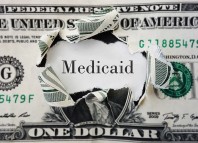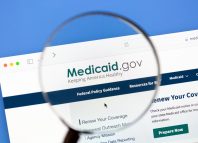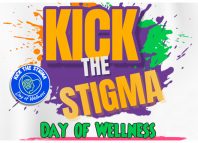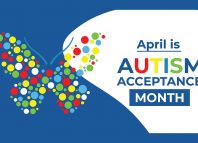HHS Announces Investment in National 988 Dialing
American Rescue Plan Funding Will Support State Efforts to Transform Suicide and Mental Health Crisis Care
| Today the Department of Health and Human Services, through its Substance Abuse and Mental Health Services Administration (SAMHSA), will make critical investments in suicide prevention and crisis care services, announcing $282 million to help transition the National Suicide Prevention Lifeline from its current 10-digit number to a three-digit dialing code – 988.
In 2020, Congress designated the new 988 dialing code to be operated through the existing National Suicide Prevention Lifeline. Converting to this easy-to-remember, three-digit number will strengthen and expand the existing Lifeline network, providing the public with easier access to life-saving services. The Lifeline currently helps thousands of people overcome crisis situations every day. The 988 dialing code will be available nationally for call, text, or chat beginning in July 2022. Standing up the 988 dialing code is a key part of the Biden-Harris Administration’s focus on ensuring that those in crisis have someone to call, someone to respond, and somewhere to go. The 988 code is a first step toward transforming crisis care in this country, creating a universal entry point to needed crisis services in line with access to other emergency medical services. With funds from the Biden-Harris Administration’s Fiscal Year (FY) 2022 budget and additional funds from the American Rescue Plan, SAMHSA’s $282 million investment will support 988 efforts across the country to shore up, scale up, and staff up, including:
“As we continue to confront the impact of the pandemic, investing in this critical tool is key to protecting the health and wellbeing of countless Americans – and saving lives. Giving the states a tool to prevent suicide and support people in crisis is essential to our HHS mission of protecting the health and wellbeing of everyone in our nation,” said HHS Secretary Xavier Becerra. “We know that remembering a three-digit number beats a ten-digit number any day, particularly in times of crisis, and I encourage every state to rev up planning to implement 988 for the sake of saving lives.” To support the initial transition to 988, SAMHSA’s investment represents a budget increase of more than 10 times the FY 2021 budget amount of $24 million. A large portion of FY 2022 funding will be distributed to crisis centers across the country. “This investment in states’ crisis call center operations will help strengthen our partnership as SAMHSA works with states to meet the suicide prevention and behavioral health needs of people across our nation,” said Miriam Delphin-Rittmon, Ph.D., the HHS Assistant Secretary for Mental Health and Substance Use and the leader of SAMHSA. “Transformation of this scale is never easy – but too many Americans are experiencing suicide and mental health crises without the support and care they need. The federal government cannot do this alone.” Suicide is the second-leading cause of death among young people and was the tenth-leading cause of death in the nation in 2019, according to U.S. Centers for Disease Control and Prevention data. In 2019, one death by suicide happened almost every 11 minutes in the US. More recently, SAMHSA’s 2020 National Survey on Drug Use and Health (NSDUH) data show 4.9 percent of adults aged 18 or older had serious thoughts of suicide, 1.3 percent made a suicide plan, and 0.5 percent attempted suicide in the past year. Among adolescents 12 to 17, 12 percent had serious thoughts of suicide, 5.3 percent made a suicide plan, and 2.5 percent attempted suicide in the past year. The findings vary by race and ethnicity, with people of mixed ethnicity reporting higher rates of serious thoughts of suicide. |











